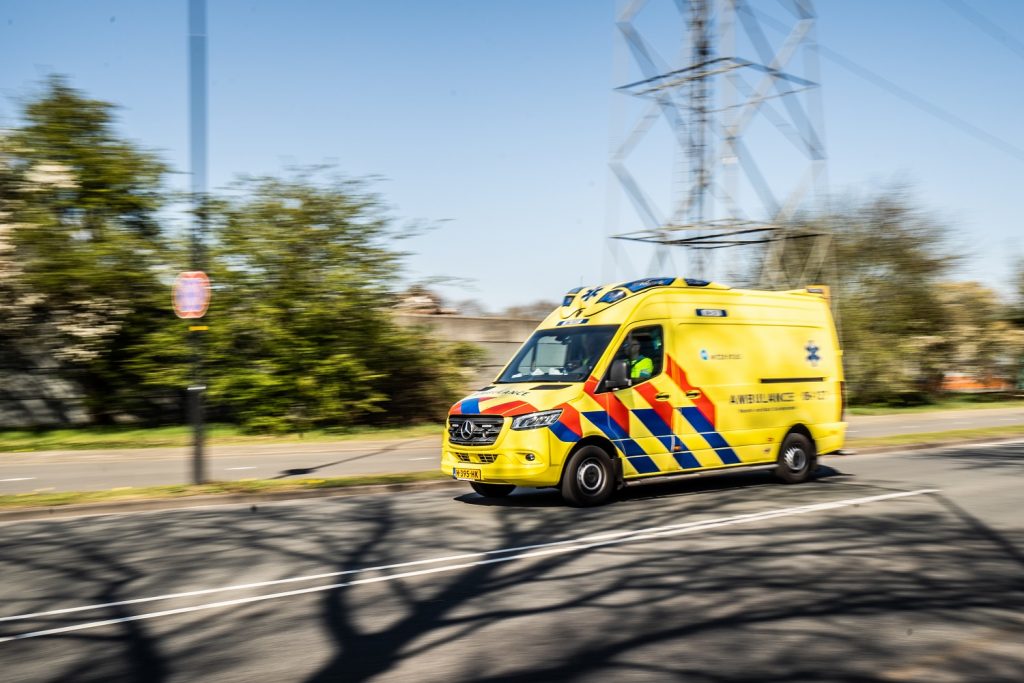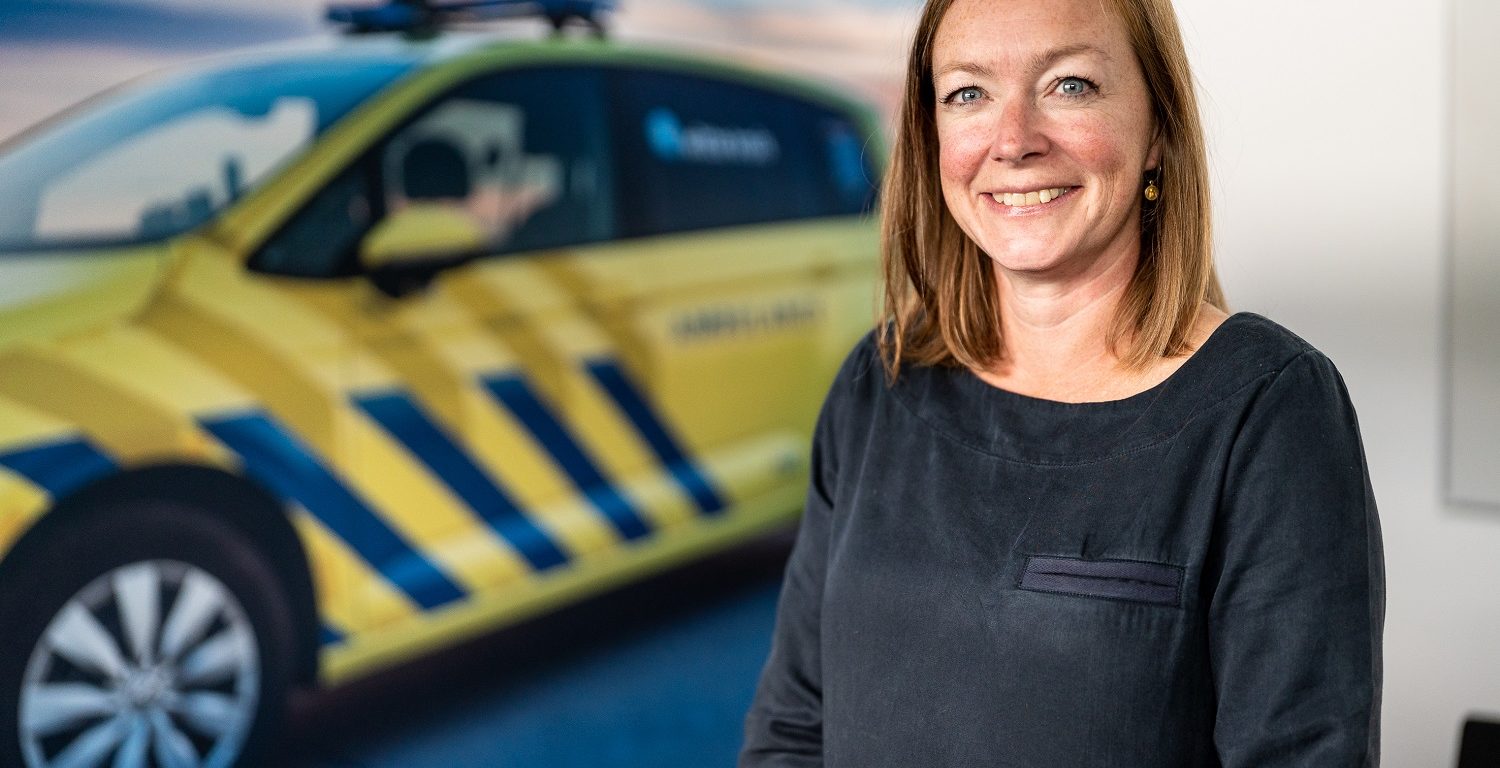« This company has become stronger and closer lately. It’s beautiful to see how we make use of the talents and qualities of the individuals within the organization. Everyone’s capacities are being used, which is very important in these times, » proudly says Anouk Hoare, Medical Director of Witte Kruis, a Transdev subsidiary and the largest provider of ambulance services in the Netherlands.
In her position, she is responsible for medical policy in areas such as ambulance and event care, but also for other branches such as the Coast Guard’s Search and Rescue helicopter. She also has Quality and Information Security in her portfolio. As if that were not enough, Anouk has also been working as an Emergency Room (E.R.) doctor for years.
« But the most challenging task in recent months has been to combine work and private life in a house with three children, » she says laughing.
When the coronavirus emerged at the beginning of this year, many businesses were in dire straits. Within Transdev, a team was put together to create a company-wide safe environment for employees, passengers and patients. Because of her position as Medical Director and her extensive experience as an E.R. physician, Anouk has been part of this initiative since the beginning.
« At the beginning of the crisis, we had to make whole decisions with only half the information. No one knew exactly how dangerous the situation was at the time, but we acted as quickly as possible using the information available, » she says.
Anouk and her colleagues at Witte Kruis have therefore become an important sounding board when discussing what measures to take in these exceptional times. «We have a lot of knowledge and experience in our organization, so it is very valuable to be able to make use of it in this situation.»

As a doctor in the emergency room, Anouk witnesses up close how much damage the coronavirus can cause.
« I’ve seen lungs that are completely ruined. And not only from the elderly, but also from young people. The residual damage is sometimes considerable » she says with concern. « The people who contract the virus sometimes still have severe symptoms after they have ‘healed’. Especially sudden, severe fatigue is something we encounter a lot ». It’s also often a psychologically anxious situation for the patients. « You have to imagine that we pick up suspect patients dressed in fully protective suits. Only our eyes are still visible, we are barely recognizable. Patients are taken away when they don’t know when they will be coming home. If they are coming home. »
Anouk also has great admiration for her colleagues on the ambulance:
« The ambulance staff really are the front-liners of care. There was a lot of triage at our hospital, but the ambulance staff went to patients whose risk of infection was not yet clear. Working in such a suit is really a burden, especially in the warm weather this summer. I also have a lot of respect for how they dealt with the many changes, which sometimes followed each other closely.»
Although the peak of the first wave of corona infections seems to be over, Anouk warns against carelessness. « We’ve had enough of the virus, but the virus is not finished with us yet. It’s still important that we maintain hygiene measures, » says Anouk as she shows how dry her hands are from frequent washing.
« Fortunately, we’ve learned a lot from the past and the most important measures have already been taken. The staff is adequately trained, and they are provided with sufficient equipment. In addition, various protocols are in place in the case of a new spike in infections.»
Anouk is therefore not immediately concerned. « In addition to observing the measures, we do not have much control over developments, so I rely on the adequate preparations. What can have a very negative impact on the situation, however, is if we experience a virulent flu wave this coming season. In combination with the coronavirus, this can cause major problems. So people, get that flu shot; it will protect the people around you!»

